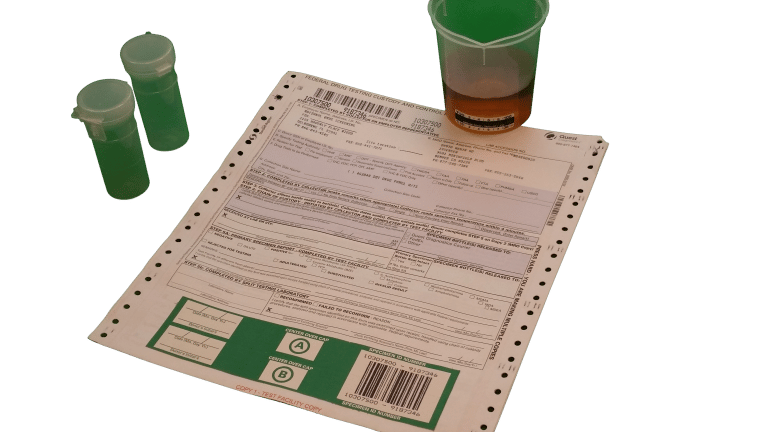The federal urine drug-testing regulations contain provisions for MROs to review and evaluate drug test results where the test result is reported by the laboratory as adulterated, substituted or invalid. The MRO conducts an interview with the specimen donor as with a confirmed positive test result and makes a final test result determination for reporting to the employer.
Specimen validity testing SVT is defined as the evaluation of a specimen to determine if it is consistent with normal human urine. SAMHSA has defined the requirements that laboratories must meet to conduct SVT for federal employee testing. The DOT instituted mandatory SVT for its drug testing programs in August 2008.
Under the SAMHSA guidelines SVT consists of
- Measurement of the creatinine level;
- Measurement of the specific gravity if the creatinine level is less than 20 mg/dL;
- Measurement of the pH;
- One or more screening tests for oxidizing adulterants.
- Additional validity tests if these are observed:
- Abnormal physical characteristics;
- Reactions or responses characteristic of an adulterant;
- Possible unidentified interfering substance;
If the certified laboratory cannot perform the additional tests required under # 5 above the laboratory will consult with the MRO to decide whether or not to send the specimen to another certified laboratory to complete the testing.
In summary, when SVT is done, results with no SVT findings on any of the tests are reported simply as negative or positive. If there are SVT findings, the results may still be negative or positive, but additionally, they also may be dilute or invalid. In cases where the laboratory can confirm extreme dilution or the presence of an adulterating substance, the results are reported as substituted or adulterated, respectively.
SVT in plain English is the way the laboratory protects against cheating on urine drug testing. Our friends at Quest Diagnostics tell us:
While it is the most common drug testing method, urine testing is not foolproof. With our TestSure™ specimen validity testing, we can help ensure the integrity of the test by measuring pH, creatinine and specific gravity (when indicated) and testing for adulterants that may be added to the urine specimen. The most common adulterants screened include oxidizing agents – such as, nitrites, chromates and halogens (e.g., bleach and iodine). Quest Diagnostics is one of the few laboratories to offer oxidant identification for some of the most common oxidizing adulterants. All “invalid results” are automatically tested twice to ensure accuracy. We also offer oxidizing adulterant identification if requested by the customer or Medical Review Officer.







